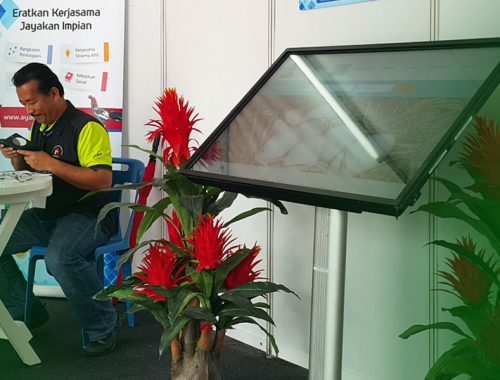10 Fascinating Advancements in Farming Technologies
Introduction
In recent years, the agricultural industry has witnessed astonishing advancements in technology, revolutionizing the way we cultivate crops and rear livestock. These cutting-edge farming technologies have not only increased efficiency and productivity but have also paved the way for sustainable and environmentally-friendly practices. From automated machinery to smart irrigation systems, let’s delve into the latest farming technologies that are shaping the future of agriculture.
1. Climate-Smart Agriculture
Advancements in climate-smart agriculture have enabled farmers to adapt to the challenges posed by climate change. Integrating precision farming techniques, such as sensor technology and satellite imagery, farmers can now monitor weather patterns, soil quality, and crop health in real-time. These insights aid in optimizing resource allocation and minimizing environmental impacts.
2. Vertical Farming
Vertical farming has garnered attention for its ability to maximize land use and produce crops in urban areas. Utilizing controlled environments, such as hydroponics and aeroponics, vertical farms cultivate crops in vertically stacked racks. This method eliminates the need for arable land, decreases water consumption, and reduces transportation costs.
3. Precision Livestock Farming
Precision livestock farming leverages technology to monitor animal behavior, health, and welfare. Through sensors and wearable devices, farmers can collect data on an individual animal basis, enabling targeted interventions and personalized care. This technology enhances productivity, animal welfare, and improves overall farm management.
4. Automated Machinery
Advancements in automation have revolutionized farming practices. Autonomous machinery, such as self-driving tractors and harvesters, streamline labor-intensive tasks and enhance operational efficiency. These machines are equipped with advanced GPS and computer vision systems, ensuring accurate and precise cultivation, planting, and harvesting.
5. Drone Technology
Drones have emerged as valuable tools in precision agriculture. Equipped with high-resolution cameras and sensors, drones capture images and data on crop health, irrigation needs, and pest infestations. This information aids farmers in making data-driven decisions, optimizing resource allocation, and managing crop health effectively.
6. Internet of Things (IoT) in Agriculture
The Internet of Things (IoT) has found its way into agriculture, enabling smart farming practices. IoT devices, such as soil moisture sensors and automated irrigation systems, ensure optimal water and nutrient distribution. Additionally, IoT facilitates real-time monitoring of livestock, crop growth, and machinery health, leading to informed decision-making.
7. Gene Editing and Biotechnology
Advancements in gene editing and biotechnology have revolutionized crop breeding and improved plant resistance to diseases, pests, and environmental stresses. Genetic modification of plants has led to the development of drought-tolerant and disease-resistant crop varieties, enhancing food security and reducing pesticide usage.
8. Robotics in Agriculture
Robotics play a significant role in agricultural operations, such as planting, weeding, and harvesting. Agricultural robots offer increased precision, efficiency, and reduced labor costs. For instance, robotic weeders use computer vision algorithms to identify and remove weeds without the need for herbicides, promoting sustainable farming practices.
9. Smart Irrigation Systems
Water scarcity is a significant concern in agriculture. Smart irrigation systems utilize real-time data, weather forecasts, and soil moisture sensors to optimize water usage. These systems deliver precise amounts of water needed by crops, minimizing water wastage and supporting sustainable water management.
10. Blockchain Technology in Agriculture
Blockchain technology has immense potential to transform the agricultural sector. Through decentralized and transparent systems, blockchain enhances traceability, food safety, and supply chain management. From tracking the origin of produce to verifying organic certification, blockchain technology ensures trust and accountability throughout the agricultural value chain.
Conclusion
The latest farming technologies present farmers with unparalleled opportunities to overcome challenges while boosting productivity and sustainability. From climate-smart agriculture to blockchain-based traceability, each advancement plays a vital role in shaping the future of agriculture. By embracing these technologies, farmers can unlock higher yields, minimize environmental impact, and meet the demands of a growing global population.
Frequently Asked Questions (FAQ)
1. Are these technologies expensive for small-scale farmers?
While some farming technologies may have high initial costs, these expenses can often be offset by increased productivity, reduced labor costs, and resource optimization. Additionally, as technology continues to evolve, prices are likely to decrease, making these advancements more accessible to small-scale farmers.
2. Can these technologies be applied in developing countries with limited resources?
Adapting the latest farming technologies to developing countries can be challenging due to infrastructure limitations and financial constraints. However, with the support of public-private partnerships and innovative financing models, the benefits of these technologies can be realized even in resource-constrained settings.
3. How do these technologies contribute to sustainable farming practices?
The latest farming technologies prioritize sustainability by minimizing resource wastage, reducing chemical inputs, and optimizing resource allocation. They also promote precision farming, ensuring that crops receive adequate water, nutrients, and protection, resulting in increased yields and reduced environmental impact.
4. Do these technologies replace the need for human labor?
While farming technologies automate certain tasks and reduce labor requirements, they do not completely eliminate the need for human involvement. Farmers still play a vital role in decision-making, maintenance, and overseeing operations to ensure optimal utilization of these technologies.
5. Are these technologies compatible with organic farming practices?
Many of the latest farming technologies can be seamlessly integrated into organic farming practices. Technologies such as smart irrigation systems, precision livestock farming, and gene editing can aid in reducing the reliance on synthetic inputs while enhancing crop yield and livestock welfare, aligning with the principles of organic farming.
You May Also Like

Unlocking Advantages and Importance for Malaysians
November 2, 2023
PROGRAM SANTAI BICARA AYAM KAMPUNG
October 4, 2021
